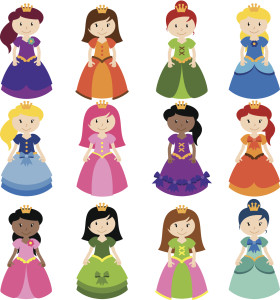
Most parents count on Disney movies to be safe for kids. Most of the movies released through Disney and its affiliates, such as Marvel and Pixar, tend to be G or PG movies that are family-oriented with a positive theme. But some researchers are concerned about the princess culture and how it affects children. In a study called “Pretty as a Princess: Longitudinal Effects of Engagement With Disney Princesses on Gender Stereotypes, Body Esteem, and Prosocial Behavior in Children” authored by Sarah M. Coyne, Jennifer Ruh Linder, Eric E. Rasmussen, David A. Nelson and Victoria Birkbeck, 198 preschoolers where studied while they interacted with Disney princesses by watching movies or playing with toys. The study found that as children had more interactions with Disney princesses, they would have more female gender-stereotypical behavior later. This phenomenon was found in both boys and girls.
What’s Wrong With Gendered Behavior?
Gendered behavior is the set of activities that are considered “acceptable” in society by each gender. For example, it used to be quite common to see nurses portrayed by women, and police officers portrayed by men. We know that men make great nurses and women can be police officers, but these were stereotypes for a number of years. Gendered behavior isn’t necessarily a problem unless important learning experiences are avoided based on gender. This could be as simple as not teaching your son to do his own laundry or not allowing your daughter to learn basic car maintenance.
Stereotypical behavior becomes a problem when girls and boys are prevented from opportunities in life because of their perceived gender. One significant issue that the United States is seeing is that girls are not entering the science, technology, engineering and math (STEM) fields. Each of these fields pay well, but women are significantly underrepresented. Stereotypical behaviors limit women’s career paths.
To empower girls into STEM, experts recommend teaching girls to say “I’ll try” instead of “I can’t.” Girls need mentors who can encourage persistence even when mistakes are made. Girls need to learn that mistakes do not mean someone isn’t good at science or math. Girls often think that getting messy is “yucky.” Don’t assume that someone isn’t interested in something, based on gender stereotypes. Encourage young women to seek out mentors and supporters in the community who can demonstrate how STEM is used in everyday life. Make sure your daughters have the same opportunities as boys when it comes to these important fields.
Disney does seem to be aware that they need to show girls and boys in non-stereotypical roles. “Zootopia” introduced Judy Hopps to the screen as a rabbit who joins the police force. She faces numerous obstacles to prove herself. But the princess movies still seem to be geared toward falling in love and “living happily ever after.” “Frozen” does try to break the mold, but ultimately, even Elsa and Anna can’t quite break free of the stereotypes. The traditional fairy tale story does not lend itself well to non-stereotypical roles.
The Solution?
No, girls and boys do not have to stop playing with Disney princess toys or stop watching Disney princess movies. Fairy tales are still an important part of childhood. The real answer to creating children who don’t see stereotypes is to encourage them to explore all sorts of activities, without placing gender roles on them. Toys shouldn’t necessarily be labeled as “boy” or “girl” toys. Girls should play with tool sets to understand how to fix things. Boys should have the opportunity to play with tea sets to learn skills that will serve them when they host a special dinner. Give children the chance to explore the world without placing stereotypes on them. Let your kids play without gender roles and see where it leads.

